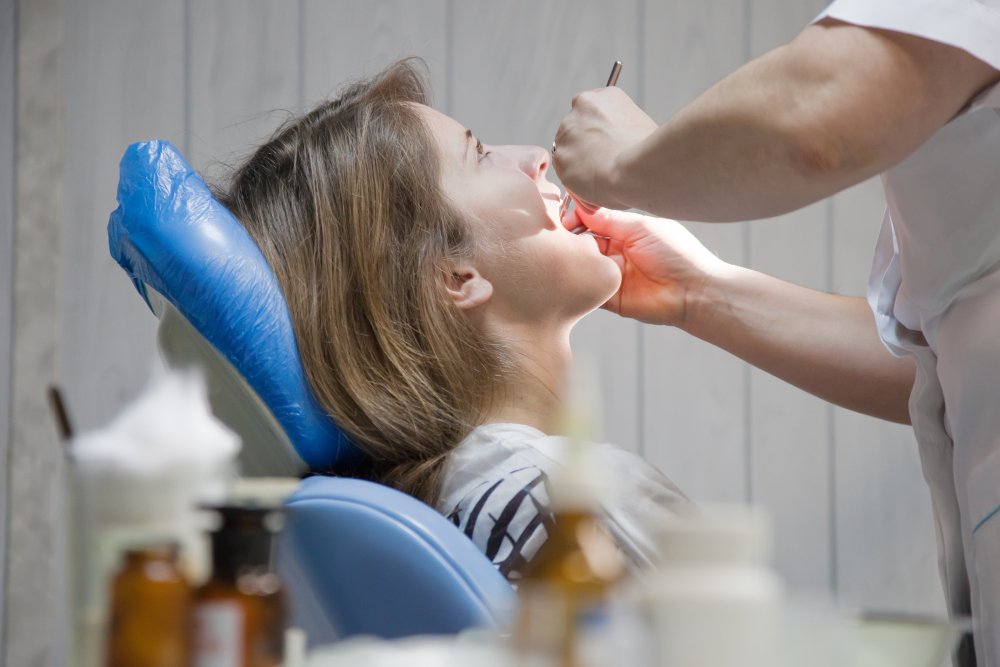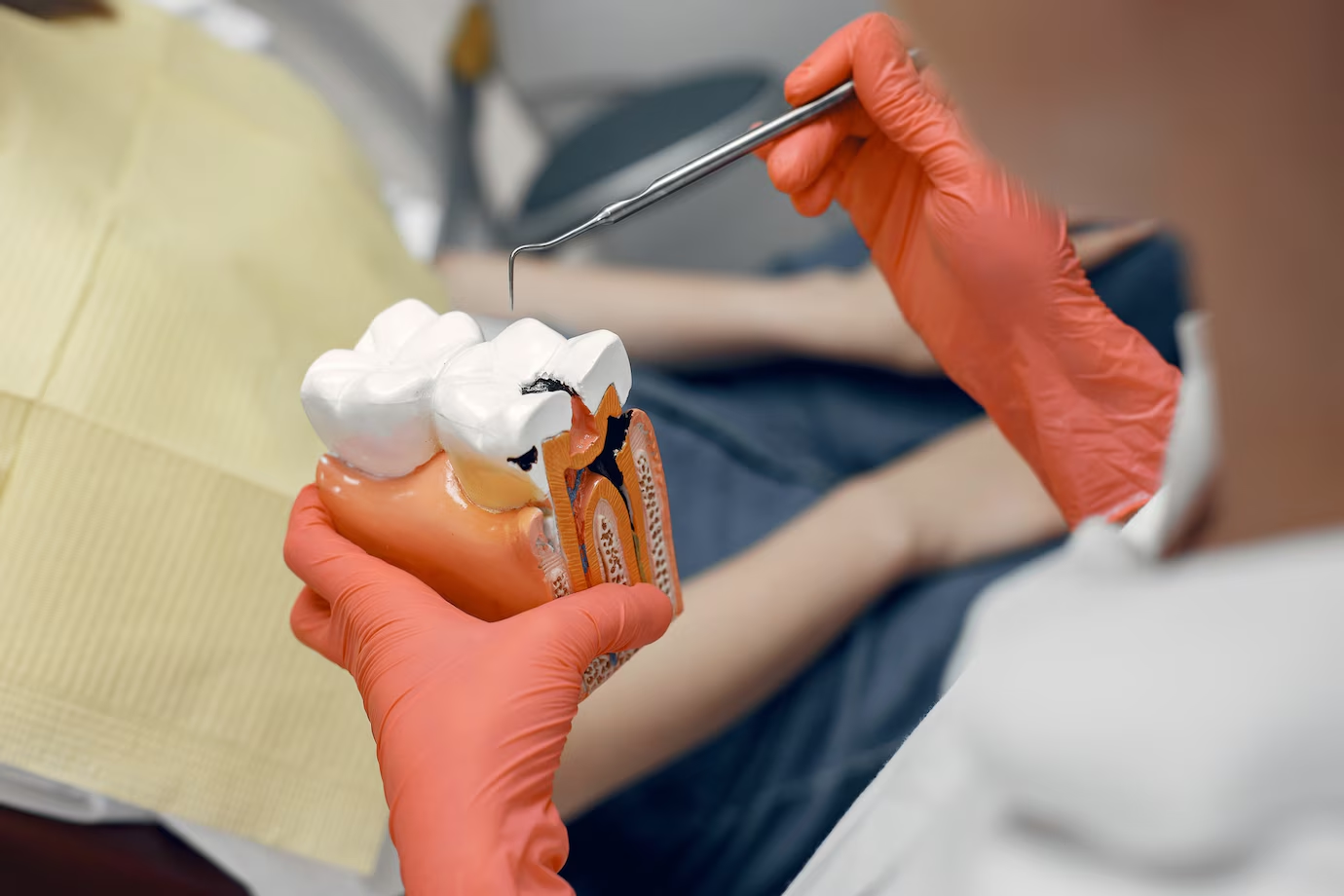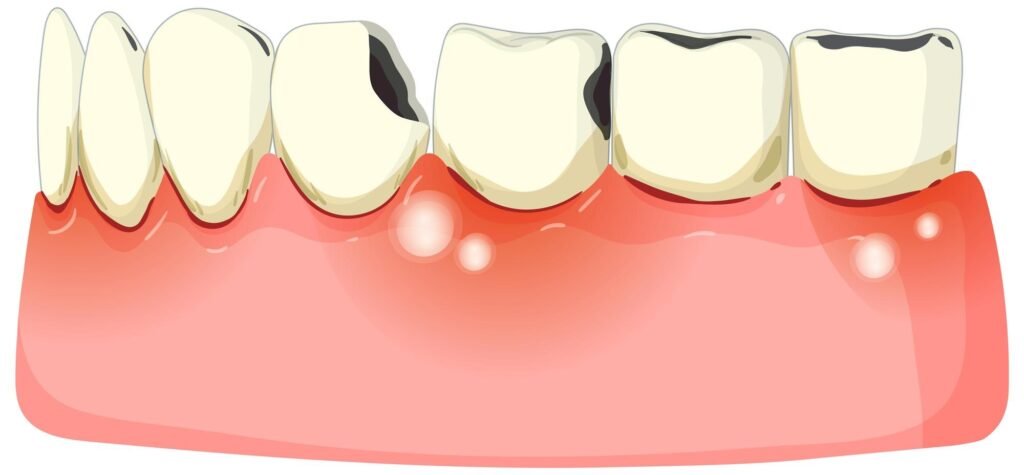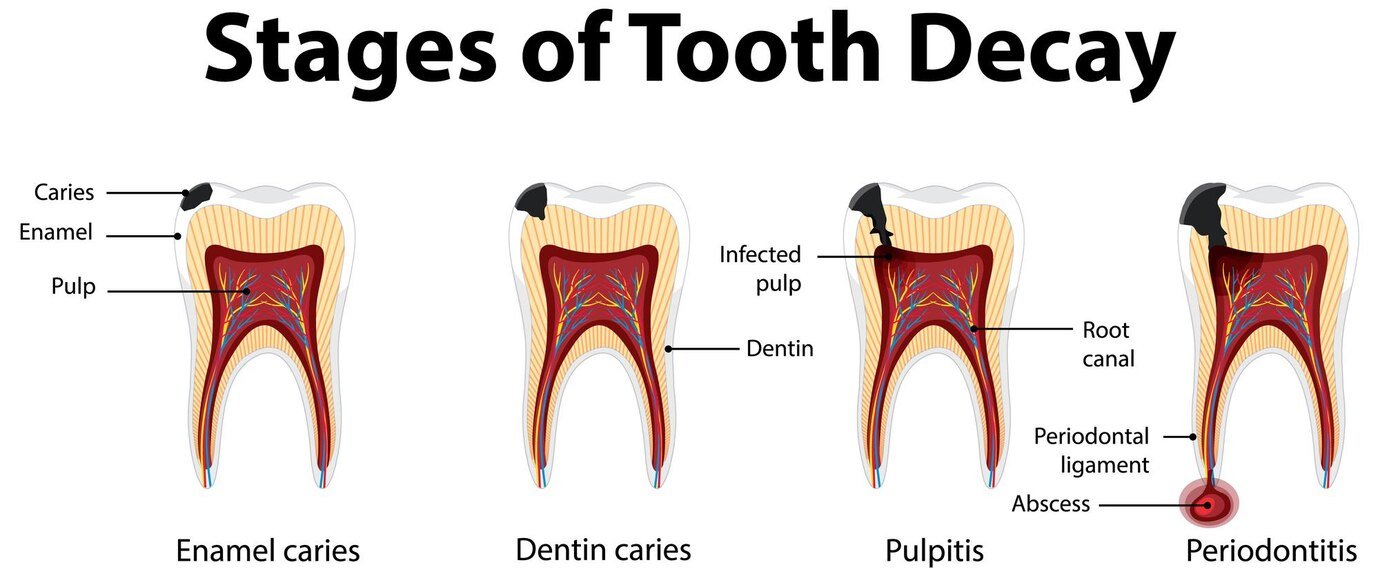Sweet treats are often a highlight of childhood — from birthday cake slices to holiday candies and yes, plenty of chocolate. But while chocolate might make your child’s day, it could be doing the opposite to their teeth. Parents often ask, “Can chocolate really cause cavities in children's teeth?” The answer, while not surprising, is worth understanding deeply.
In this blog, we’ll talk about how chocolate and other sweet snacks can affect your child’s teeth. You’ll find out what causes cavities in children, how to spot early signs of tooth decay, and easy ways to protect your child’s smile. With the professional Pediatric Dentistry team at Diamond Dental Clinic, you’ll be well-equipped to keep your child’s teeth healthy and cavity-free.
How Chocolate Contributes to Cavities
Almost all the chocolates sold today for children are filled with refined sugars. Well, when a child eats chocolate, the sugars get into contact with natural bacteria present in their mouth. These bacteria act on the sugars and produce acids.
This acid is what starts to destroy your child's tooth enamel-the tough outer layer protecting their teeth. In time, constant exposure to acid (especially without brushing or rinsing) weakens the enamel and cavity formation begins.
Even dark chocolate, although slightly lower in sugar than milk or white chocolate, can still be harmful if eaten often or without proper oral hygiene.
What Causes Cavities in Children?
Cavities, also known as dental caries, are essentially permanent damage to the structure of the tooth. They begin as tiny holes or soft spots on the enamel and worsen over time if left untreated. While chocolate and sugar are well-known culprits, cavities are actually the result of multiple factors:
The main causes include:
1. Frequent Consumption of Sugary or Sticky Foods
Children who regularly consume chocolates, candies, sugary snacks, or fruit juices are at a higher risk of developing cavities. These foods tend to cling to the teeth, especially in hard-to-clean areas like the back molars. Bacteria in the mouth feed on sugars, producing acids that gradually erode the tooth enamel, leading to the formation of cavities. Sticky foods are particularly harmful because they stay on the teeth longer, allowing more time for acid attacks to occur.
2. Poor Oral Hygiene Habits
Not brushing at least twice a day or neglecting to floss allows plaque and food particles to build up on the teeth. Over time, this creates an ideal environment for bacteria to thrive and produce acids that attack the enamel. Children need to be taught proper brushing and flossing techniques from an early age, and supervised brushing can help ensure they’re cleaning thoroughly and consistently.
3. Prolonged Bottle Feeding (Especially at Bedtime)
Cavities in infants are easily caused when milk and juices are allowed to be sipped at bedtime. The natural sugars in these fluids are given the opportunity to rinse around the child's teeth for a long period of time during their sleep. The low rate of saliva production at night further reduces the clearing action within the mouth, hence enhancing cavity formation. For preventive health, the use of water at bedtime is advised and babies should have been weaned off the bottle by the time they are one year old.
4. Not Visiting a Dental Clinic Regularly
Regular visits to a dentist are imperative for discovering and preventing complications related to oral health. Visits can help professionals identify such possible issues as cavities in early stages, misalignment, or diseases related to gums. Professional cleanings include removal of tartar and plaque all the way to cleaning that usually is not possible with only brushing, minimizing cavity risk for young children.
5. Genetic Factors
Some children may be predisposed to certain cavity-relevant characteristics that include a softer enamel, deeper grooves on their molars or reduced saliva production. Bacterial and plaque invasion and natural remineralization as per these traits will become easy. Given the family background, children may be in need of more frequent visits to the dentist with preventive treatments like fluoride or sealants.
Early Signs of Tooth Decay in Children
Cavities don’t always cause pain in the early stages, which is why they often go unnoticed until they’re more advanced. Here are common warning signs to watch out for:
- White spots or chalky patches on the teeth (early demineralization)
- Sensitivity to hot, cold, or sweet foods
- Dark spots or visible holes in the teeth
- Complaints of pain when chewing
- Persistent bad breath
- Swollen or bleeding gums
- Avoidance of certain foods or drinks
If your child shows any of these signs, it’s time to consult a pediatric dental specialist at a leading dental clinic in Kuwait like Diamond Dental Clinic, where early diagnosis means less invasive treatment.
How to Avoid Cavities in Children: Prevention Tips for Parents
Preventing cavities doesn't mean eliminating chocolate forever. It means practicing balance, setting routines, and making oral hygiene a part of your child’s daily life.
Here’s how you can protect your child’s teeth:
1. Limit Sugar Intake
Sweets and chocolates should only be for special occasions, and sticky or chewy candies should be avoided because of how long they stay on the teeth. Encourage your child to drink water after sugary food consumption.
2. Establish Good Brushing Habits
Instruct your child well on how to brush their teeth effectively at least twice a day while using fluoride toothpaste. Young children may require your assistance with this activity until they can start doing it themselves.
3. Introduce Flossing Early
Flossing removes plaque and food particles from between the teeth where brushes can't reach. Start flossing your child’s teeth as soon as two teeth touch.
4. Schedule Regular Dental Visits
The routine check-ups after every 6 months allow the dentist to monitor the oral development of your child and see early signs of decay. At Diamond Dental Clinic, we offer personalized care for kids, fitting under our general Dental Services in Kuwait.
5. Consider Sealants
Dental sealants are thin protective coatings applied to molars that protect the tooth against cavity-causing bacteria. They are mainly beneficial for those children who have a tendency to decay.
How to Treat Cavities in Children
Despite best efforts, cavities can still happen. But don’t panic — modern dentistry offers safe, effective, and gentle treatments.
At Diamond Dental Clinic, we treat every child with empathy and care. Depending on the severity of the cavity, treatments may include:
- Fluoride treatments to remineralize enamel in very early stages
- Dental fillings using child-friendly materials to restore function and appearance
- Crowns, especially for larger cavities on baby teeth, to preserve the tooth’s integrity
- Pulp therapy or baby root canal in cases where the infection reaches the inner pulp
Our clinic uses the latest technology and techniques to ensure your child’s experience is as comfortable as possible.
Why Regular Dental Visits Matter
Routine dental visits aren’t just for cleaning — they’re essential for building lifelong oral health. During these visits, we:
- Monitor tooth development and jaw alignment
- Offer preventive treatments like sealants and fluoride applications
- Educate children (and parents) about oral hygiene in a fun, engaging way
- Detect early signs of decay before they become painful or complex
As a well known Dental Services provider in Kuwait, Diamond Dental Clinic offers a welcoming, family-friendly environment where kids feel safe and cared for.
Final Thoughts: Sweet Treats with Smart Habits
Chocolate enters into being the part of your child's life-but not at the cost of their dental health. Keeping informed, indulging in daily hygiene, and making regular commitments to the dentist can help your child enjoy sweet treats with an equally healthy smile.
If you’re concerned about dental cavities in children, or if it’s time for your child’s next check-up, visit Diamond Dental Clinic, an top-notch dental clinic in Kuwait. Our experienced pediatric dental team is here to support your family every step of the way.
Book your child’s appointment today at Diamond Dental Clinic — where healthy smiles begin.













